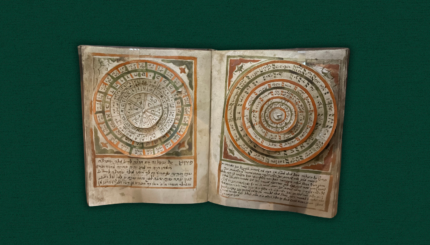When is Rosh Hashanah 2015? Find out here. Or wondering when is Yom Kippur 2015? Click here to find out!
The Ba’al Shem Tov taught: Compassion is God’s revenge.
Is this not a beautiful teaching for the Jewish New Year?
God doesn’t avenge. God only loves. When God feels your pain, God pours more love into the world.
So don’t bother praying for God to help you harm someone. You’ll have to find a different prayer. Maybe one that asks God to help others let go of their rage, fear, or pain. Or asks God to strengthen your endurance, patience, ingenuity, or negotiating skills.
The Divine way of “getting back at” someone is to offer compassion. If you want to be more spiritual, a better channel for divine qualities, you know what to do. Whenever you feel the impulse to take revenge, express the impulse through an act of compassion.
When someone lashes out, they may imagine you an enemy. If you take revenge, you confirm their image. As confirmed enemies, harm becomes your mode of interaction. But if you refuse to play that way, you thwart the game. You turn it towards good. Kindness becomes the new interface.
It’s a beautiful teaching. Sometimes it works. But it seems simplistic. Revenge is not a linear act of cause and effect, with a neat node of self-reflection in the middle. When we act out of hurt, we may take revenge in all directions. The human heart is complex.
Disciples of the Ba’al Shem Tov agreed. So they added complexity, spinning the teaching into a provocative parable.
Once upon a time, a royal minister wanted to arrange the assassination of his king. When the king heard of it, he promoted and rewarded this minister. The minister was so overcome with shame that he killed himself.
What a terrible, unexpected resolution! How should we understand this parable? Why did the minister seek the king’s death? What did the king hope to accomplish by rewarding the minister? Why was the minister ashamed? Why did the minister kill himself?
Perhaps the king was cruel, unethical, and destructive. By killing the king, the minister hoped to save the nation. But the king distracted the minister with wealth and power. Ashamed of compromising his principles, the minister could not live with himself.
Perhaps the minister, nursing a grudge, personally hated the king. But the king responded to hatred with kindness. Thus, the minister became ashamed of his own interpersonal skills. He doubted his ability to work through regret. Lacking compassion for himself, he took his own life.
How are such wildly different interpretations possible? Because every Hasidic parable has two storylines: a literal one and a spiritual one. Literally, we read here about a human king, a cunning political operator, who defeats his enemies while appearing generous. Spiritually, we read about a Divine King, an ideal figure, powerful and generous, untouched by politics or enemies. A fountain of love, flowing into us, never blocked by our flaws — only by our lack of receptivity.
The parable invites us to imagine ourselves in the role of the minister: a pained human being in a broken world. So, I think of the grudges I hold tightly. My gut says they protect me. Because others carelessly use me, I need the savvy armour. Though my grudges are debris from stressful times, it’s not easy to let them fall away.
To do so, I have to believe that divine love could flow in our world. To remember at least one parent, partner, friend or companion animal who loved me simply because I exist. Whose love flowed right through my flaws. And then, for at least one revelatory moment, I have to feel myself as they did. In other word: feel their compassion for me.
Then I will know: my wounds and the sins they produced need not define me. Using the love shared with me, I can reach out to others in love.
Compassion is God’s revenge. Is it not a beautiful teaching for the New Year?
When is Rosh Hashanah 2015? Find out here. Or wondering when is Yom Kippur 2015? Click here to find out!
Photo credit: Enver Rahmanov, Wikimedia Commons.
Rosh Hashanah
Pronounced: roshe hah-SHAH-nah, also roshe ha-shah-NAH, Origin: Hebrew, the Jewish new year.
Yom Kippur
Pronounced: yohm KIPP-er, also yohm kee-PORE, Origin: Hebrew, The Day of Atonement, the holiest day on the Jewish calendar and, with Rosh Hashanah, one of the High Holidays.



